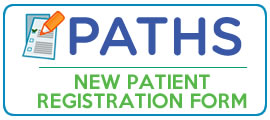What does a sonographer do?
Sonographers (ultrasound technologists) use complex equipment to direct high frequency sound waves into specific body areas to produce images that show the shape and position of fetuses, internal organs, fluid accumulation, or masses. These images are used by physicians to make diagnoses. Many sonographers, especially those who work in large institutions, specialize in examining specific areas of the body. Examples include neurosonology (brain), echocardiography (heart), obstetrics/gynecology (female pelvis), and vascular (arteries and veins). Sonographers work under the supervision of a physician or senior sonographer.
What might a sonographer do in a workday?
- check patients’ medical histories and prior test results.
- select and set up appropriate test equipment.
- plan procedures and explain them to patients.
- determine the proper patient position and transducer selection to achieve accurate test results.
- complete the scan while observing the screen to make sure that the image produced is satisfactory for diagnostic purposes.
- operate equipment that produces photographs or printout (ultra-sonograms) images.
Sonographers may work in a laboratory, an examination room, at bedside, or in surgery.
How much does a sonographer make?
- $38,000 - $72,000
How do I become a sonographer?
Students intending to pursue a career as a sonographer should prepare by taking the most challenging high school courses available in science, math and English.
Students must be graduates of a two-year accredited health care program.
The American Registry for Diagnostic Medical Sonography, incorporated in June 1975, is an independent, nonprofit organization that administers examinations and awards credentials in the areas of diagnostic medical sonography, diagnostic cardiac sonography, vascular interpretation, and vascular technology. ARDMS offers these credentials: Registered Diagnostic Medical Sonographer (RDMS), Registered Diagnostic Cardiac Sonographer (RDCS), Registered Vascular Technologist (RVT), and Registered Physician in Vascular Interpretation (RPVI). In many cases, these credentials are required for employment.
Where else can I learn about becoming a sonographer?
American Registry for Diagnostic Medical Sonography Inc.
51 Monroe Street, Plaza East One / Rockville, MD 20850-2400
tel: (800) 541-9754 or (301) 738-8401 / web: www.ardms.org
Society of Diagnostic Medical Sonography
2745 Dallas Parkway, Suite 350 / Plano, TX 75093-8730
tel: (214) 473-8057 or (800) 229-9506 / web: www.sdms.org


